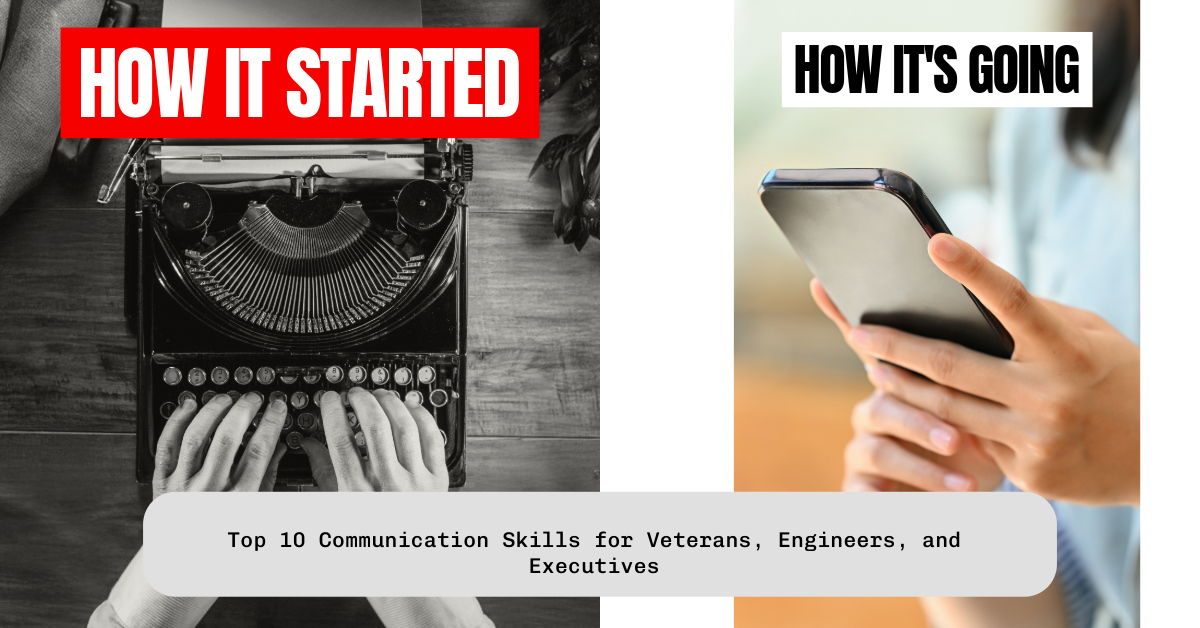In the dynamic landscape of today’s professional world, negotiation skills stand out as a pivotal asset that can drive success and foster collaboration. For veterans transitioning into engineering roles and engineers aspiring to leadership positions, mastering negotiation skills is essential for achieving favorable outcomes, building strong relationships, and leading effectively. This article explores the importance of negotiation skills, their benefits, and practical strategies to develop this skill, with a focus on coaching veterans and engineers.
Understanding Negotiation Skills
Negotiation involves the process of reaching a mutually beneficial agreement between two or more parties. It requires effective communication, problem-solving, and the ability to understand and address the needs and interests of all involved. For veterans and engineers, who often work in technical and high-stakes environments, negotiation skills can significantly impact their ability to advocate for their ideas, collaborate with others, and achieve successful outcomes.
The Importance of Negotiation Skills for Veterans
Veterans bring a wealth of experience and leadership skills to the civilian workforce, but transitioning from a military to a civilian career can present challenges. Negotiation skills help veterans effectively navigate these challenges by fostering understanding and collaboration with colleagues from diverse backgrounds.
Key benefits of negotiation skills for veterans include:
- Effective Communication: Negotiation fosters clear and open communication, essential for building trust and achieving common goals.
- Career Advancement: Strong negotiation skills can lead to new opportunities and career growth in civilian roles.
- Successful Transition: Negotiation aids in adapting to new environments and roles, facilitating a smoother transition from military to civilian careers.
The Role of Negotiation Skills in Engineering
Engineers are often tasked with collaborating on complex projects and presenting technical information to diverse audiences. Negotiation skills are a critical asset that enhances their ability to advocate for their ideas, collaborate effectively, and lead teams.
Key benefits of negotiation skills for engineers include:
- Improved Collaboration: Negotiation fosters a collaborative work environment and enhances team dynamics.
- Effective Leadership: Engineers aspiring to leadership roles can use negotiation skills to inspire and motivate their teams.
- Enhanced Client Relations: Effective negotiation with clients leads to better project outcomes and customer satisfaction.
Strategies for Developing Negotiation Skills
- Prepare Thoroughly: Research and understand the needs, interests, and goals of all parties involved in the negotiation. Prepare a clear agenda and identify potential areas of compromise.
- Communicate Clearly: Use clear and concise language to articulate your goals and interests. Listen actively to understand the perspectives of others and ask clarifying questions.
- Build Rapport: Establish a positive and respectful relationship with the other party. Use empathy and understanding to build trust and foster collaboration.
- Focus on Interests, Not Positions: Identify the underlying interests and needs of all parties, rather than focusing solely on positions. This approach fosters creative problem-solving and mutually beneficial outcomes.
- Be Open to Compromise: Be willing to explore different options and make concessions to reach a mutually beneficial agreement. Flexibility and adaptability are key to successful negotiation.
- Manage Emotions: Stay calm and composed during negotiations. Use emotional intelligence to manage your emotions and respond effectively to the emotions of others.
- Seek Win-Win Solutions: Aim for outcomes that benefit all parties involved. Focus on creating value and finding solutions that address the needs and interests of everyone.
Coaching Veterans and Engineers in Negotiation Skills
Coaching programs tailored for veterans and engineers can play a pivotal role in developing negotiation skills. These programs should focus on:
- Customized Training: Addressing the unique negotiation challenges faced by veterans and engineers through targeted workshops and exercises.
- Mentorship Opportunities: Pairing participants with experienced mentors who can provide guidance and feedback on negotiation practices.
- Real-World Scenarios: Incorporating simulations and role-playing exercises that mimic real-world situations to practice negotiation in a safe environment.
- Continuous Feedback: Providing ongoing feedback and support to reinforce learning and encourage skill development.
Conclusion
Negotiation skills are a powerful tool that can transform the way veterans and engineers communicate and lead. By mastering this skill, they can enhance collaboration, improve project outcomes, and drive innovation in their respective fields. As the demand for effective communication continues to grow, investing in negotiation skills will undoubtedly yield significant returns for individuals and organizations alike.
For veterans transitioning to engineering roles and engineers aspiring to leadership positions, negotiation skills are not just a skill—it’s a pathway to success. By embracing this practice, they can unlock their full potential and make a lasting impact in their careers and communities.
By focusing on negotiation skills, veterans and engineers can enhance their communication abilities, paving the way for successful transitions and leadership opportunities. Whether you’re a veteran entering the engineering field or an engineer looking to advance your career, mastering negotiation skills is a crucial step toward achieving your goals.
